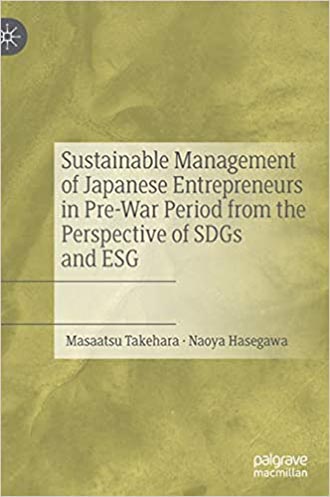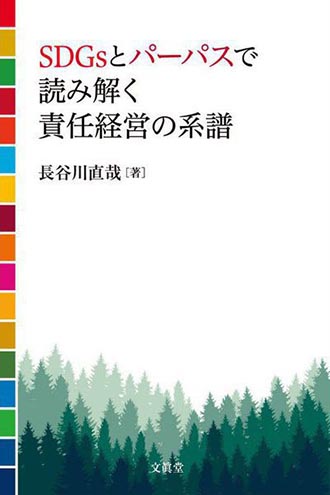Research x SDGs Prof. HASEGAWA Naoya, Faculty of Sustainability Studies
Systematic Indexing of Corporate Non-Financial Information to Promote a Sustainable Society in Japan
- Oct 11, 2016
Corporate non-financial information, or CSR (Corporate Social Responsibility) activities, have been attracting attention along with changes in the social system, such as environmental measures, regional contributions, and improvement of the labor environment.
Professor HASEGAWA Naoya Hasegawa of the Graduate School of Public Policy and Social Governance and Graduate School of Public Policy and Social Governance 's Major in Sustainability Studies (scheduled to open in 2016) and the Faculty of Sustainability Studies has been conducting practical research on corporate activities to build a sustainable society since the late 1990s, when he was still a corporate employee.
Toward Systematic Indexing of Nonfinancial Information in Corporations
CSR used to be thought of as an axis of opposition to economic activities, but the idea of integrating economic and social activities is finally taking root in Japan. The Corporate Governance Code (corporate governance guidelines) and the Stewardship Code (guidelines for institutional investors) issued by the Financial Services Agency as part of the Abenomics Strategy for the Revitalization of Japan are about to change CSR in a major way. We are currently conducting research on ESG, which is attracting attention as a new corporate evaluation axis.
ESG is an acronym for "Environment," "Society," and "Governance," based on the concept that addressing global environmental and social issues contributes to economic development and the formation of a sustainable society. The term "environment" includes global warming countermeasures for products and manufacturing processes, "society" includes diversity and collaboration with NPOs, and "corporate governance" includes a management system that promotes a long-term vision. We aim to systematize ESG investment and create indicators to analyze the quality of management. At the root of Professor Hasegawa's desire is the concept of sustainability, which he has long advocated.
Is the value of a company solely economic? In recent years, there has been a growing trend toward shorttermism, where corporate value is measured in terms of profit levels over two to three years, but corporate efforts to address social issues will create the foundation for a future society. If ESG investment indicators can be developed, investment in beneficial initiatives will increase, and we believe that both the resolution of social issues and corporate growth can be achieved at the same time.
Along with the construction of this index, we are also researching the history of Japanese companies at the same time. In fact, there are many Japanese companies that have taken similar initiatives," he said. I would like to make the most of this research so that the index can be adapted to suit Japanese companies.

This is the first book to summarize the results of our research into corporate history. It analyzes the efforts of Suzuki's founder, an automobile manufacturer, from multiple perspectives, including management strategy, entrepreneurship, and labor disputes, and unravels the foresight and management skills that nurtured the company from an automatic loom manufacturer to the automobile manufacturer that continues to grow today. Professor Hasegawa says, "Entrepreneurs are artists" as the selection and concentration of businesses for the future, which includes unpredictable matters, is based on the sensibility of the managers themselves.
Nikkei STOCK League and the best academic paper award - cultivating the research skills of numerous students in his charge in a visible way.
Professor Hasegawa has led many of his students to win academic and research awards, including the Nikkei STOCK League Grand Prize and Special Jury Prize, the Japan Environmental Management Association Grand Prize, and the Sumitomo Science and Engineering Student Essay Award Grand Prize. He is admired by his students, who say, "I don't think there is any other professor who teaches us with such enthusiasm.
After graduating from the University's Faculty of Law, he joined Yasuda Fire & Marine Insurance Co. After working in sales at the Shizuoka Branch and in the Financial Planning Department and Equity Department at the Tokyo Head Office, he was transferred to Sompo Japan Nipponkoa Asset Management (Sompo Japan Asset Management), where his asset management experience became the source of his current research.
While on assignment at Sompo Japan Asset in the late 1990s, I was assigned to develop an investment trust that invested in stocks of companies that were actively addressing environmental issues, as a project under the direct supervision of the president of Sompo Japan itself," he says. It was the first of its kind in Japan at the development stage, although it was the second in Japan of its kind, now called SRI (Socially Responsible Investment) or ESG investment, because its release was a few weeks later than other companies. Although there were some who took a skeptical view, we felt a positive response from the research stage. In addition to the financial information we needed for our business, we were interested in the history and philosophy of the target companies, and through our own independent research, we were able to see how much of an impact they had on the management side.
Sompo Japan Green Open, nicknamed "Beech Forest," recorded sales of 18 billion yen at the time of its launch, despite the fact that 3 billion yen was considered a success. I was surprised to see the sales grow to 25 billion yen, but it showed me that there is a place for ESG in Japan," he said. His motivation for research was boosted and he decided to become a researcher and faculty member at Faculty of Sustainability Studies University of Yamanashi, where he applied for a position to check his market value.

With seminar students from Faculty of Sustainability Studies who won the 14th Nikkei STOCK League (photo at left) / He loves classical music so much that he seriously wanted to become a conductor when he was a junior high school student. He still enjoys classical music as a "living conductor" with a score in his hand between research sessions [right photo].
In April 2016, the Major in Sustainability Studies was established in Graduate School of Public Policy and Social Governance
Since 2015, Professor Hasegawa has served as the Chair of the Preparatory Committee for the establishment of the Major in Sustainability Studies Graduate School Graduate School of Public Policy and Social Governance and is working hard toward its opening in 2016.
The Graduate School of Public Policy and Social Governance has offered courses in CSR and other subjects in the past, but the Major in Sustainability Studies plans to establish an integrated educational program that crosses administrative, legal, management, environmental, and other fields. A fundamental review of social systems and a multifaceted approach are essential to solving the world's complex issues. We will conduct research and education to build a sustainable society in which the human environment and the natural environment are in harmony through a new academic system with sustainability as its keyword.
The program targets not only public officials, researchers, and those in the non-profit sector, but also corporate executives and employees. Just as Yamato Transport's CSV (Creation of Common Value) project to support the elderly in Otoyo Town, Kochi Prefecture, in collaboration with the local government and the Chamber of Commerce and Industry, was born from a proposal from a sales representative, we believe that the ability of those involved in the field to identify and solve problems is the first step toward a sustainable society, which in turn will lead to the growth of Japanese industry. We believe that this is the first step toward a sustainable society and, in turn, the growth of Japanese industry.
An open lecture commemorating the opening of the graduate school is scheduled to be held on the same day as the graduate school's entrance counseling session, Saturday, December 5. Mr. Toshio Arima, President of Trustee United Nations Global Compact Network Japan and former president of Fuji Xerox, will also speak at the lecture. Interested parties should check the Graduate School of Public Policy and Social Governance website for more details after early November.
(Reprinted from HOSEI ONLINE)
Related Link
- Hosei University Graduate School Graduate School of Public Policy and Social Governance
- April 2016 Graduate School of Graduate School of Public Policy and Social GovernanceMajor in Sustainability Studies opened (June 30, 2015 news release)
- HOSEI ONLINE
Faculty of Sustainability Studies
Professor HASEGAWA Naoya Hasegawa
Hosei University Graduate School of Graduate School of Public Policy and Social Governance ( Major in Sustainability Studies )
Hosei University Faculty of Sustainability Studies
Born in 1958 in Kanagawa Prefecture
After graduating from Hosei University Faculty of Law with a degree Department of Law 1982, he joined Yasuda Fire & Marine Insurance Company (currently Sompo Japan Nipponkoa Holdings, Inc. While engaged in asset management operations in the Financial Planning Department, Sompo Japan Nipponkoa Asset Management, etc., and research on international economies on loan to the Japan Center for International Financial Information, he also earned a Master's degree in Social Sciences from Hosei University Graduate School of Social Sciences (Business Administration) in 1997, a Master's degree in Graduate School of Law from Waseda University Graduate School Graduate School of Law ) in 2002, and a Master's degree in Business Administration from Yokohama National University Graduate School Graduate School of Law 2005. In 2005, he completed the doctoral program at the International Graduate School of Social Sciences, Yokohama National University (Doctor of Business Administration). After working as a faculty member at the University of Yamanashi as an assistant professor in the Department of Sustainable Society Formation, he was appointed to his current position in April 2011. He is Trustee Society of Environmental Management.
His publications include "The Man Who Created Suzuki: Michio Suzuki" (Mie University Press), "Introduction to Ecological Accounting for a Sustainable Society" (Moriyama Shoten, co-author), and "History of Japanese Financial Business Traced by Entrepreneurial Activities" (Hosei University Innovation Management Research Center Book Series, co-author).
New Publication
Sustainable Management of Japanese Entrepreneurs in the Pre-War Period from the Perspective of SDGs and ESG (published December 2020)
The above book has received the Society Award (Academic Contribution Award)

Genealogy of Responsible Management as Read by SDGs and Purpose (Published in June 2021 at






